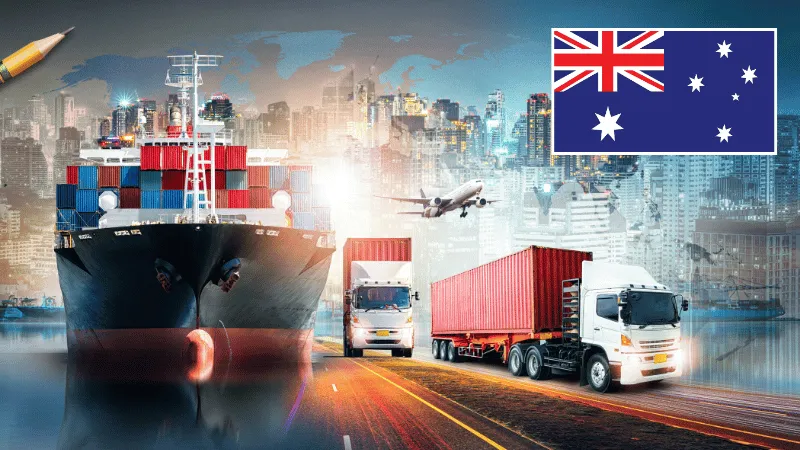
Australia will have a robust, rapidly growing logistics industry in 2026; numerous organizations require trained talents to navigate supply chains, warehouse deposits, and transportation chains. This is the perfect way for international job seekers to enhance their positions while discovering the Australian countryside. This blog looks at logistics jobs in Australia in 2026, where to find them, if visa sponsorship will be offered, the requirements, the benefits/reasons to work in this field, the duties, the different types of jobs, expected salaries, and how to apply.
Job Details
- Country: Australia
- Job Title: Logistics jobs
- Experience: Few Years
- Education: Diploma
- Visa Sponsorship: Yes
Also Check: Farm Assistant Manager Jobs in Australia with Visa Sponsorship
Job Requirements
To secure a logistics job in Australia with visa sponsorship, candidates typically need the following qualifications:
- Many jobs have a job type of ‘Other’, and the ‘Experience Required’ is work experience in logistics, supply chain, or a related field. However, the requirements for certain experiences are unique for specific positions.
- It is rather common for specialists to possess a degree in logistics, supply chain management, business, or related fields. Some may allow the consideration of certification or a diploma in a related field.
- Effective organizational and communication skills, good experience in using several types of logistics software, including ERP systems, together with sufficiently good supply chain knowledge.
Types of Jobs
Logistics Coordinator: Within this channel, held accountable for the flow of goods and the coordination of the carrier in his/her conveyance to the customer.
Warehouse Manager: Responsible for leading and organizing the day-to-day running of a warehouse, handling issues like stock control, employees, and obeying regulatory measures.
Supply Chain Analyst: Used to interpret information about the supply chain in a view of identifying areas that require enhancement in terms of cost and efficiency.
Transport Planner: Coordinates the scheduling of transport schemes, controls the planning of logistic processes, and complies with the regulations.
Import/Export Manager: Responsible for importing and exporting goods, documentation, and dealing with all issues of International Business Laws.
Fleet Manager: Is responsible for making decisions about the vehicle fleet of the company for purposes of maintenance, and scheduling, among other services.
Inventory Control Specialist: Responsible for stocking, record keeping, and reduction of stockpile in the organization.
Logistics Analyst: Is involved in logistics activities, analyses them, and defines how these activities should be optimized.
Distribution Manager: Responsible for the handling of distributions of the products to customers via retailers or directly to the customers.
Customs Broker: They help in the clearance of goods through the customs regime, compliance with the requisite legalities, and collection of duties.
Advantages
The pay scale in Australia is usually attractive for logistic specialists; there is a possibility to find the difference in the wages depending on the experience and the position.
- The job area of logistics is fairly predictable when it comes to career mobility as a large number of people in the field progress to higher ranks or niche posts.
- Most firms in Australia provide employment opportunities that allow workers to have flexible working terms and conditions and a good balance between work and personal life.
- This is a promising field and employment is granted because the demand for logistics specialists is constantly increasing with the constant increase of online shopping and international cooperation.
Duties
Logistics professionals handle a variety of tasks, which can include:
- Organizing and coming up with logistic strategies working with the suppliers or carriers and managing the transport systems.
- Coordinating with vendors for procurement of stocks and supplies, monitoring of stocks, supervising the restocking, checking on the physical stock, and orders for replenishment to avoid stock-out or overstock situations.
- Evaluating and interpreting operational documentation to discover patterns, potential problems, or zones of inefficiency.
Salary Expectations
Pay rates depend on experience, position, and location, and below represent average salary rates for logistics jobs in Australia. As of 2026, the average annual salaries for different logistics positions are approximately:
- Logistics Coordinator: AUD 70, 000 to AUD 85, 000
- Warehouse Manager: E80,000 – E100, 000
- Supply Chain Analyst: AN additional AUD 75,000 – AUD 90,000
- Transport Planner: A$80, 000 to A$95, 000
Also Check: Dairy Farming Jobs in Australia with Visa Sponsorship
Application Process
- Searching for companies that offer visa sponsorship can be done online and then see which positions the company has that suit the candidate. Online resources such as Seek, Indeed, and LinkedIn should be used in the search for jobs.
- Ensure you write the resume in as many keywords as possible with a special emphasis on your logistics experience and skills. They should then display certifications and achievements that relate to the job.
- Apply in the field that you most prefer and apply for the positions of the company you want to work in.
- Employers will also want to know if you will require a visa since after a job offer is offered, the employer will be responsible for sponsoring the visa.